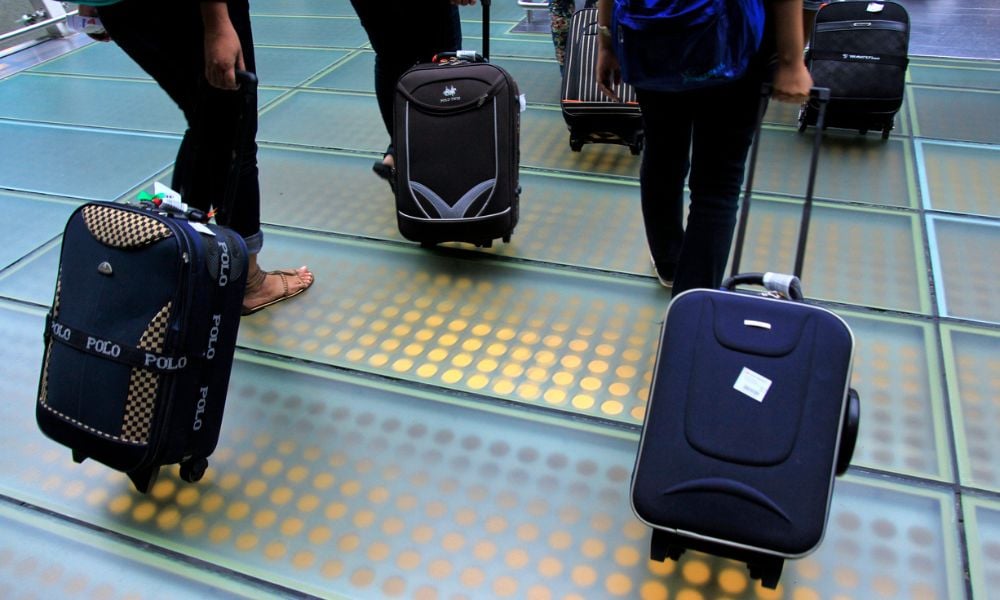Construction worker seeks damages for injuries he allegedly sustained in workplace accident

In a recent case heard by a District Court in Singapore, a construction worker sought damages from his employer for injuries he allegedly sustained in a workplace accident.
The incident occurred on July 21, 2020, at a worksite beside Sembawang Drive Industrial Carpark, where the worker was assigned to work on a trailer bed attached to a prime mover.
The case revolved around the worker's claim that he was struck in the torso by a bundle of metal beams being lifted by an excavator, causing him to fall from the trailer bed and suffer injuries.
The worker argued that the accident was caused by the employer's negligence or breaches of duties owed to him as an employee or as the occupier of the worksite.
Disputed facts and conflicting accounts
At the heart of the case were the disputed facts surrounding the incident and the conflicting accounts provided by the worker and the employer's witnesses.
The worker maintained that he was struck by a bundle of metal beams, which led to his fall and subsequent injuries. He alleged that this was due to the employer's failure to implement a safe system of work at the worksite.
On the other hand, the employer's primary defence was that the worker had voluntarily jumped off the trailer bed, rather than being struck by the bundle as alleged.
The employer's witnesses, who were present at the worksite on the day of the incident, generally maintained that they had not seen the worker being struck by a bundle or that he had jumped off the trailer bed.
The court noted the employer's position, stating, "The Defendant's (employer) primary defence was essentially that the Plaintiff (worker) had made up the story of how he came to be injured on 21 July 2020. Whilst it accepted that the Plaintiff did suffer injuries resulting from a fall from the trailer bed on 21 July 2020, the Defendant submitted that this was the result of the Plaintiff choosing voluntarily to jump off the trailer bed instead of being struck by the bundle."
The court’s examination
During the trial, the court examined the evidence presented by both parties. The worker, who was the sole witness in support of his claim, faced challenges in maintaining consistency in his testimony.
The court noted several inconsistencies in the worker's evidence, particularly regarding the specific details of how he was allegedly struck by the bundle and how he landed on the ground after the incident.
One significant point of contention was the absence of any mention in the medical reports of the worker being struck in the torso or even complaining of such an incident.
The court found this omission noteworthy, given the comprehensive nature of the medical reports and the alleged severity of the impact from a bundle weighing several tonnes.
The court remarked, "With respect, the absence from the medical records of evidence that the Plaintiff had been struck in the torso or even any complaint by the Plaintiff of having so been struck, is so conspicuous that it deserved to be addressed by the Plaintiff's counsel. This is especially so when the bundle which was alleged to have struck the Plaintiff weighed, in his own words, 'a few tonnes' and, according to him, was the direct cause of his fall from the trailer bed."
The court also considered the testimony of the employer's witnesses, who were present at the worksite on the day of the incident.
While their evidence was not entirely consistent, particularly regarding the documentary aspects of the safety system in place, the court found their accounts more convincing than the worker's internally inconsistent testimony.
Employer’s system of work
The court emphasised that the crucial question to be decided was whether the worker had, in fact, been struck in the torso by the bundle, as this was the foundation of his claim.
This "Threshold Issue" was deemed relevant to whether the employer's system of work contained any lapses that led to the worker being struck and subsequently injured.
The court clarified its role, stating, "I have highlighted the foregoing because in these proceedings, the broad question which the Court must decide on is not whether the Defendant ought to be punished for lapses in its system of work or other facets of its operations on 21 July 2020, but whether the Plaintiff should be compensated for injuries which he can prove he suffered as a result of the Defendant having breached duties owed to the Plaintiff."
The court’s decision
Ultimately, the court dismissed the worker's claim, finding that he had not discharged his burden of proof in relation to the Threshold Issue.
The court concluded that the factual basis for the worker's claim had not been established, given the inconsistencies in his evidence and the lack of objective corroboration.
The court summarised its findings, stating, "On the whole, where the Threshold Issue is concerned, with respect I found the evidence of the Plaintiff's colleagues more convincing than that of the Plaintiff, which was both internally inconsistent and unsupported by other witnesses."
The court further elaborated on the implications of its decision, explaining, "Even if this Court were to agree with the Plaintiff's submissions on the deficiencies in the Defendant's system of works on the day of the Accident, this would still not relieve the Plaintiff from having to prove that he had in fact been injured by a bundle of hollow sections or I-beams being lifted by the excavator."
The court highlighted the importance of consistent and credible evidence in establishing liability in personal injury claims, reminding parties in similar workplace disputes to ensure that their evidence is consistent, credible, and well-supported by documentation.
The court concluded, "For the reasons stated above, I was of the view that the Plaintiff had not discharged his burden of proof in relation to the Threshold Issue. It followed that the factual basis for the Plaintiff's claim had not been made out, and I accordingly dismissed the Plaintiff's claim in its entirety." The court also ordered the worker to pay the employer for the lawsuit’s costs.







